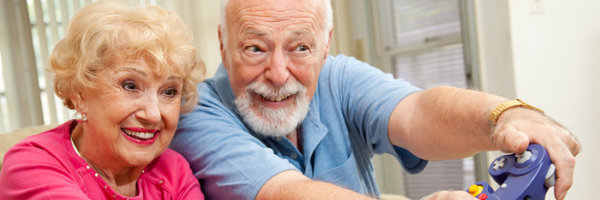
12
Jun, 2012
The Senior Spectrum
What does the word “senior” mean to you? In our world, “senior” is thrown around generally to cover anyone aged 60 or up. Some stores discount for age 55 and over… and call it the “senior discount. And in some places — like the movie theatres — 65 is the going age to be called a senior. With all the variation, what is a senior anyways?
Most of the boomer generation who are just beginning to fall into these senior categories don’t like the word senior. In their minds, it depicts an elderly relative they have known for years sitting in a rocking chair knitting slippers.
Senior community centres are dropping this word in their titles because they want to draw in the younger versions of the aging population. Boomer magazine seeks to reach adults 50 and older. Why the aversion to a word that just means “being older?” Here is a quote to put us in the correct frame of mind: “Do not regret growing older. It is a privilege denied to many.” – Author Unknown
The senior spectrum is large and there are 2 categories that break it up a bit. They are the “young-old” and the “old-old.” In her book “Another Country,” Mary Pipher considers that until people lose their health, they are in the young-old category; no matter what senior age they are. Until people are ill, many keep their old routines and pursue new hobbies they didn’t have time for while they were working. Retired young-old travel, do volunteer work, and enjoy friends and family sometimes well up into their eighties.
As an adult child, we sometimes feel our parents need to be taken care of. We encourage them to move to a smaller space and downsize from their larger home with a full set of stairs or maybe a large square footage that they don’t need anymore. This can cause family tension.
What needs to be understood by the well-intentioned adult child is this distinction between young-old and old-old. If the parent is in the young-old category, there is no need to worry so much about making these types of transitions. It is when the health of the parent begins to breakdown and you see them moving into the old-old. That is the time when the adult child needs to support and encourage the idea of downsizing and making a move to a smaller space. Relax and let your parents enjoy their young-old days, but be watchful and ready to help and support a transition before they are seriously into a crisis of health.
After Betty’s dad passed away she was in a panic mode thinking that her mom needed to move out of the large 4 bedroom 2 storey country home of many years. All that she could think about was how she was going to convince her mom to make a move closer to her and to a smaller space. Her mom held her ground and said that she wanted to stay in her home that she loved as long as she could. Even though she didn’t drive, Betty’s mom had friends in the community that would help her. She determined to stay put!
Betty’s mom continued to live in her home for another 8 years. It became very clear to Betty that her mom was very happy and content living in her large home. Her mom had the spirit of the young-old and managed fine until her health began to breakdown.
Waiting for a serious health crisis is also not a good time to be making major life changes. There are rarely simple choices at this stage. It’s good to move slowly, to think, and talk things through when you see your parents moving into the old-old. It is also good to have a test period or trial run before making long-term decisions. The search for the right move really depends on a search for the right people. It’s a search for love and respect. What is important in this transition is family.
As an adult child this is where your parent needs you and hopes you will be there for them. The pressures of life are sometimes too great for them when stepping into these moments of time. Giving reassurance, love, and support to your loved one will be repaid to you later when your children, by your example, help you when you step in to the old-old stage of life. Remember this stage of life is one we all will eventually have to go through.
Like my Mom always said to me as together we went through her transitions – “Just you wait, your turn will come, then you will know how it feels.”